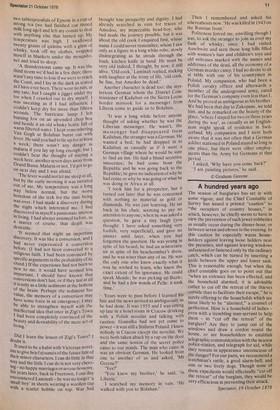A hundred years ago
The season of burglaries has set in with some vigour, and the Chief Constable of Surrey has issued a printed "caution" to "the occupiers of country houses," in which, however, he chiefly seems to have in view the prevention of such jewel-robberies as usually occur during the dinner-hour, or between seven and eleven in the evening. In this caution he especially warns householders against leaving loose ladders near the premises, and against leaving windows unfastened or fastened only by the ordinary catch, which can be turned by inserting a knife between the upper and lower sash. This is reasonable enough, but when the chief constable goes on to point out that "when an entrance has been effected, and the household alarmed, it is advisable rather to cut off the retreat of the thieves outside than to facilitate their escape," he is Surely offering to the households which are most likely to be "alarmed," a counsel of perfection. How is a household of ladies — even with a trembling man-servant to help them — to "cut off the retreat" of the burglars? Are they to jump out of the windows and draw a cordon round the house, or are householders to establish telegraphic communication with the nearest police-station, and telegraph for aid, while they remain in appearance unconscious of the danger? For our parts, we recommend a watchman's rattle, a good alarm-bell, and one or two lively dogs. Though none of these expedients would effectually "cut off the retreat" of the burglars, they would be very efficacious in preventing their attack.
Spectator, 19 October 1878






































 Previous page
Previous page